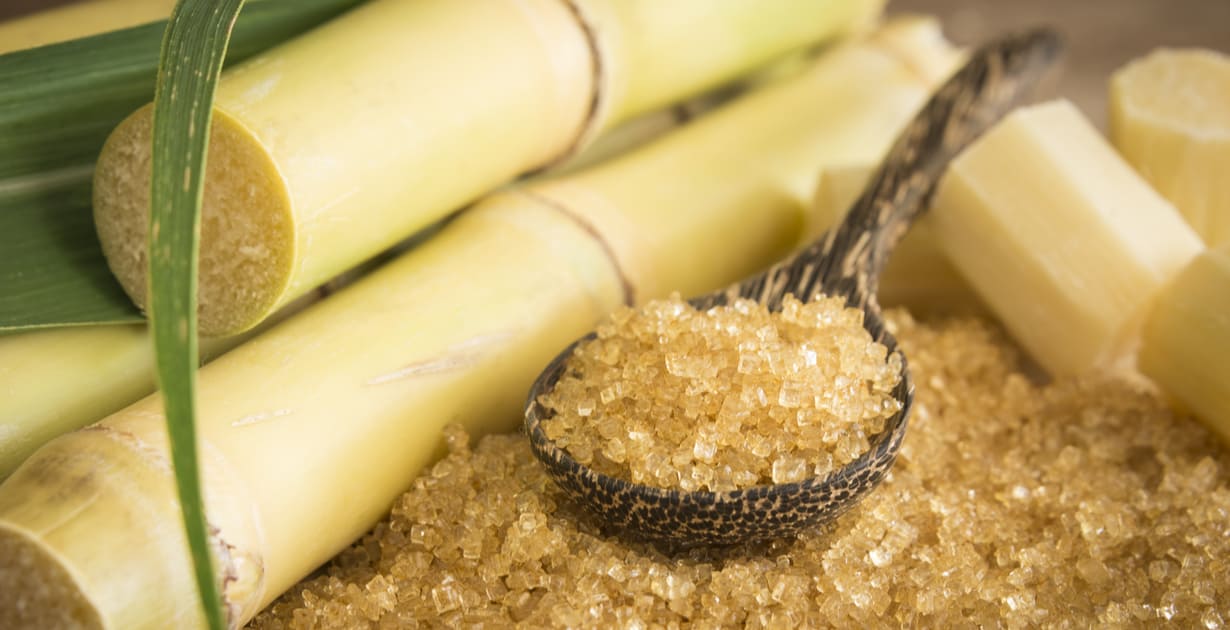Cane Sugar Processing: Innovative Techniques for Quality Production
A Comprehensive Review of the Health and Economic Effects of Walking Cane Sugar Processing on Regional Communities
Cane sugar processing plays a crucial duty in shaping the financial landscape of regional neighborhoods, offering job opportunity and promoting secondary sectors. However, the health ramifications related to high sugar usage can not be neglected, as they add to increasing prices of excessive weight and diabetic issues. This nuanced vibrant invites an essential assessment of exactly how neighborhoods can enhance economic gains while resolving journalism health challenges they encounter. The exploration of lasting techniques and academic efforts may simply hold the trick to resolving these conflicting interests. What approaches might communities execute to achieve this balance?
Financial Benefits of Walking Cane Sugar Processing
Walking cane sugar processing offers substantial financial benefits that expand past the instant agricultural field. The farming and processing of sugarcane create numerous job chances, from farming to manufacturing and distribution. This work generation not only supports neighborhood economic situations but additionally fosters neighborhood advancement by providing steady income sources for families.
In addition, the sugar market stimulates ancillary organizations, consisting of transportation, tools supply, and packaging services (Cane Sugar Processing). As these markets grow, they add to an extra durable economic structure, improving general neighborhood resilience. The export capacity of processed cane sugar better amplifies economic benefits, positioning regions as competitive players in global markets
Financial investment in modern-day handling centers can cause boosted efficiency and effectiveness, consequently lowering waste and maximizing source use. This shift not just profits the neighborhood economic situation however also supports sustainability efforts by minimizing environmental impacts.
In addition, the income created from walking cane sugar handling can be reinvested in regional infrastructure, education, and medical care, promoting holistic area development. Generally, the financial benefits of cane sugar processing are multifaceted, providing a structure for enduring prosperity in agricultural regions.
Health Dangers Connected With Sugar Usage
Excessive sugar usage positions significant wellness threats that necessitate serious interest. High consumption of sugarcoated, specifically from processed drinks and foods, has been connected to countless health complications. Among one of the most important concerns is weight problems, as sugary diet regimens add to an increased caloric consumption without providing necessary nutrients. This excess can cause metabolic conditions, consisting of type 2 diabetic issues, which has actually come to be increasingly widespread in both grownups and youngsters - Cane Sugar Processing.
Moreover, high sugar usage is connected with heart disease. Raised blood sugar level levels can result in insulin resistance, a precursor to various heart-related issues. In addition, sugar can have damaging impacts on dental health, resulting in tooth cavities and gum condition, as microorganisms in the mouth grow on sugar, generating acids that deteriorate tooth enamel.
Moreover, emerging study suggests a prospective web link in between high sugar intake and psychological wellness problems, such as clinical depression and stress and anxiety. As neighborhoods come to grips with these wellness risks, it becomes vital to promote understanding and encourage much healthier dietary choices. Dealing with sugar consumption is crucial not only for specific wellness however also for the general well-being of regional communities, highlighting the demand for extensive public health approaches.
Environmental Effects of Sugar Manufacturing
Frequently neglected in discussions about sugar's implications is the significant ecological impact of sugar manufacturing. The growing of sugarcane commonly demands substantial land use, resulting in deforestation, loss of biodiversity, and interruption of neighborhood ecological communities. The conversion of forests and wetlands into sugar plantations can result in habitat devastation, harmful many types and changing eco-friendly equilibrium.
Moreover, sugar production is resource-intensive, consuming substantial quantities of water for irrigation. This can bring about deficiency of neighborhood water resources, detrimentally affecting both farming practices and neighborhood access to tidy water. Additionally, making use of chemical plant foods and pesticides in sugarcane farming can contribute to dirt destruction and water pollution, as overflow from these chemicals enters nearby rivers and lakes, impacting aquatic life and human health.
The ecological footprint extends to the handling phase, where energy usage and waste generation further aggravate environmental concerns. Air air pollution from burning sugarcane areas, together with greenhouse gas discharges, add to climate modification. Because of this, the ecological effects of sugar production warrant serious consideration, advising stakeholders to embrace visite site more sustainable methods to mitigate these adverse impacts on neighborhood ecological communities and areas.
Job Development and Community Advancement
The ecological obstacles positioned by sugar manufacturing are typically counterbalanced by its possibility for economic benefits, especially in job development and area development. The walking stick sugar market works as a substantial source of employment in lots of rural locations, supplying jobs throughout numerous skill degrees, from farming labor to handling and distribution duties. This work not only sustains individual family members yet also adds to the general economic vitality of local communities.
Additionally, the establishment of sugar handling centers stimulates ancillary businesses, such as transportation services, devices supply, and upkeep carriers. As these companies grow, they produce added tasks and strengthen neighborhood economic situations. The income produced from the sugar market also causes increased tax incomes, which can be reinvested right into social work such as healthcare, education, and infrastructure development.
Additionally, the sugar sector commonly engages in neighborhood advancement initiatives, such as supporting regional institutions and health programs, therefore boosting the lifestyle for homeowners. By fostering strong community ties and advertising economic growth, the walking cane sugar processing industry plays an important duty in uplifting neighborhood populations, making it a crucial element of lasting advancement methods in sugar-producing areas.
Balancing Health and Economic Development
In browsing the complexities of walking cane sugar processing, a critical difficulty exists in balancing health factors to consider with economic growth. The sugar market considerably adds to local economic situations by generating work, promoting associated fields, and increasing tax incomes. Nonetheless, the health implications related to extreme sugar intake can lead to chronic diseases such as excessive weight, diabetic issues, and cardio concerns, which can burden public health systems and diminish workforce productivity.

In addition, regulative structures can play a pivotal role in directing sector practices towards more have a peek here sustainable and health-conscious approaches. By promoting partnership in between federal government bodies, health and wellness companies, and the sugar market, neighborhoods can navigate the duality of wellness and financial development, guaranteeing that the advantages of walking cane sugar handling are equitably shared while focusing on public wellness.
Verdict
Finally, the processing of cane index sugar presents both significant financial benefits and remarkable wellness threats for local neighborhoods. While it fosters job creation and promotes regional advancement, the involved health concerns, especially relating to weight problems and diabetes mellitus, require a cautious balancing act. By promoting responsible intake and investing in neighborhood education and sustainable practices, it is feasible to optimize economic benefits while minimizing adverse wellness impacts, consequently making certain a much healthier future for regional populaces.
Furthermore, sugar can have damaging impacts on oral wellness, resulting in tooth cavities and gum tissue condition, as germs in the mouth flourish on sugar, producing acids that wear down tooth enamel.
Dealing with sugar consumption is crucial not just for individual wellness yet additionally for the general health of regional areas, highlighting the need for thorough public health and wellness approaches.
Regularly ignored in discussions regarding sugar's effects is the considerable ecological effect of sugar manufacturing. The health and wellness effects associated with excessive sugar intake can lead to persistent diseases such as excessive weight, diabetes mellitus, and cardiovascular problems, which can problem public health systems and decrease labor force productivity.
